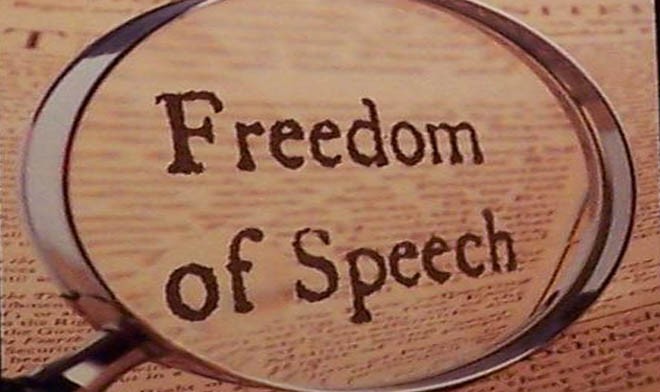
The difference between the treatment of the Jewish population and the Roma population speaks volumes about the selective nature of the European ideas of freedom of speech

The conflict between the citizen and the outsider is a conflict between speech and silence. The word ‘barbarian’ (barbaros in Greek) signifies a person whose language was not understandable to a resident of Athens, the city-state. Similarly, the difference between an Arab and an ajami is also of the power to speak.
The problem is the same: if you are a citizen, you are free to have a self, and your self can express itself through the use of available language; and if you are not a citizen, you are supposed to remain silent. Conversely, if you are given the right to speak, you are being considered equal to a citizen. You can have a self.
In ancient societies, the first hierarchies emerged the masters of words, who dominated the public arenas in times of peace, and the listeners. The master of words was often made the village chief. In times of conflict, the master of words was supposed to produce a victor strategy or yield all authority to those who could win wars. Therefore, the ability to speak and the ability to inflict violence are the characteristics of sovereignty even now.
The non-citizens in any land are threatened people, the marginalised, the subaltern, the lumpenproletariat. They are the dregs of a society, the riff-raff, the undesirables. They are not supposed to speak.
Speech has never been a universal, free right of everybody in any society. The idea of free speech has always been secondary to the shenanigans of realpolitik.
The current problem of free speech in Europe is, therefore, a continuation of old hierarchies and prejudices. The minorities should listen and the majority can speak. But the claims of the majority are that free speech is a universal right that is available to everyone. The claim is false.
Europe has laws protecting free speech and prohibiting hate speech, which exist side by side. This gives the lawmakers, and the majority of the population, an unbridled power. If someone criticises the Muslim minority, it is interpreted as free speech. If someone criticises the Jewish minority, it is considered hate speech and anti-Semitism.
This situation appears to be a contradiction but it reveals a deeper truth about the nature of power in any society. Speech has always been a prerogative, a privilege. The minorities of Europe should not be confusing themselves by thinking that it is a right. There are no rights outside a social contract. The social contract with the outsider is never eternal. It is based on expediency.
This is illustrated by the difference in the treatment of the Jews and the Roma people of Europe. Fascist powers killed approximately 6 million Jews and from 220,000 to 500,000 Gypsies (the Roma people). But after the war ended, the status of the Jews improved because the new victors were more concerned with creating a source of permanent conflict in the Middle East (despite the initial proposal to settle the Jews of Europe in Alaska).
On the other hand, the Roma people continued to suffer in oblivion. The reason was simple. The Roma people did not have any potential role in any future conflict. They were not even concerned with territories. They were and still are a vagabond people who do not acknowledge the borders of any state as valid borders. Therefore, they have never demanded a state.
Even after the defeat of Hitler and the retreat of Nazism from Germany’s public life, the Federal Republic of Germany decided that the measures against the Roma people were legitimate. In this way, they were denied the possibility of claiming any compensation for the damages caused by the Nazis. Successive German governments denied the fact that the Roma were targeted as a racial group. They continued to argue that the reasons for the persecution of the Roma people were moral. Only in 1979, Germany acknowledged that the Roma people had suffered at the hands of the Nazis because of racism.
The Roma people cannot claim the same right to speak because they do not believe in becoming citizens within any fixed territory. They are still trying to have their human rights respected through different legal instruments created by the United Nations.
The difference between the treatment of the Jewish population and the Roma population speaks volumes about the selective nature of the European ideas of freedom of speech and the universal human rights. Both groups have suffered almost equally, as far as the percentage is concerned. But one group is given a state right in the heart of the Middle East so that major wars and conflicts can be created in the region. The other is considered not even eligible to claim any restitution for three decades.
Anyone who has any misgivings about the universality of human rights and the right to free speech should study the post-World War II history of the Roma people and the Jewish people.
Those who were once the victims of European fascism have learnt how to acquire and accumulate power and now are behaving in the same way as the Nazis. The Muslims, despite their help, are becoming the victims of erstwhile victims.
So far, the Muslims have followed the Roma model and not created their own victims. What if they also start following the Israeli model by aligning themselves to the logic of the citizen and capital and start creating victims? Then they will have acquired the power to speak on the world stage.